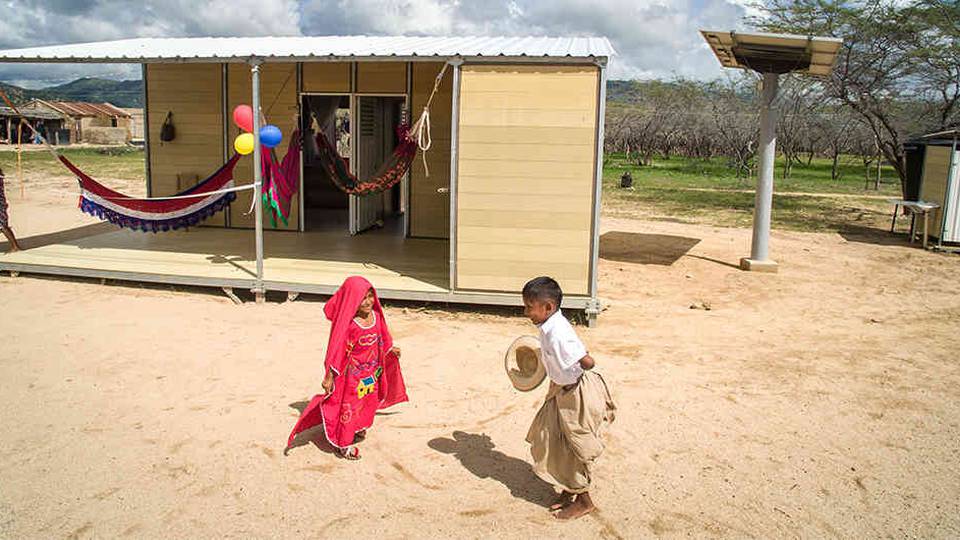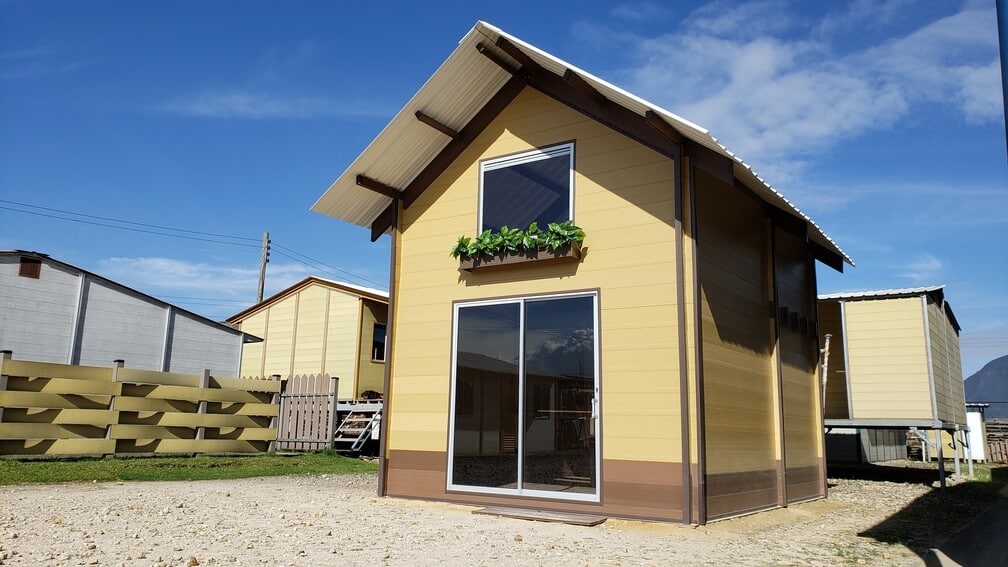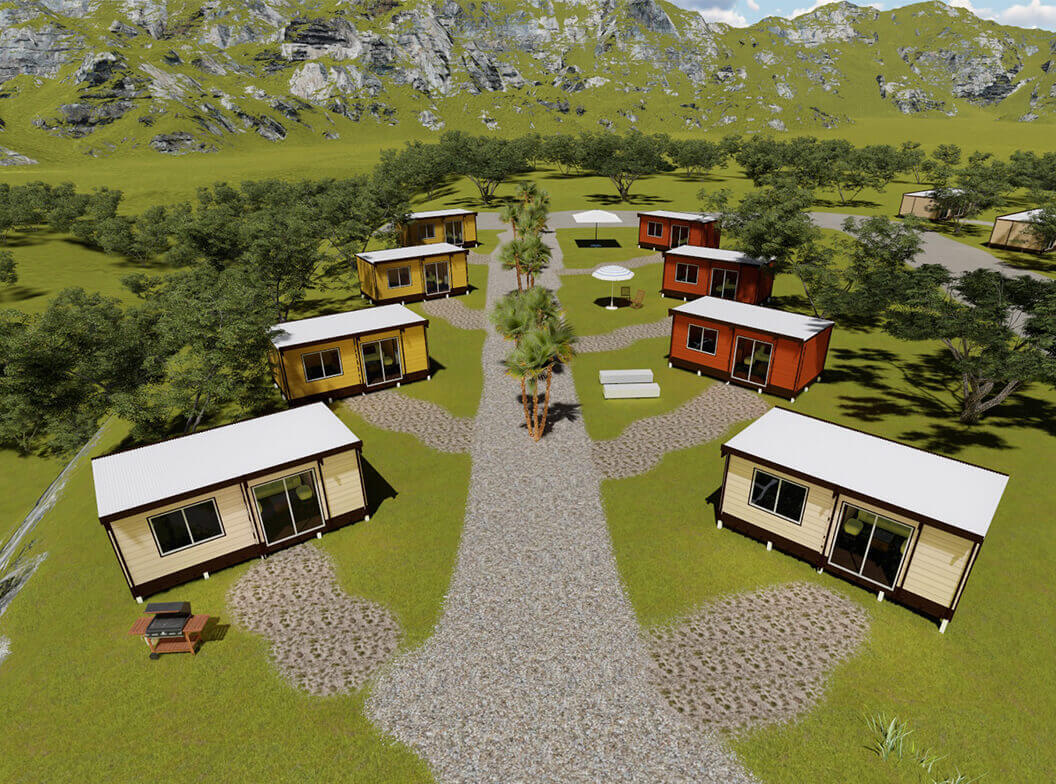Colombia (Bogota )
In Colombia, sustainable affordable homes are being built on solid grounds… coffee grounds.
We love a project that solves two problems at the same time. Well, this one solves a multitude. Woodpecker is a Bogota-based eco-friendly company that preserves the environment creating materials from coffee husks and recycled plastic. The husks would have otherwise become waste, dumped in landfills that release methane, a potent greenhouse gas.

Coffee husks
But the good doesn’t stop there. Woodpecker then uses the wood-plastic composite (WPC) to create affordable housing and classrooms.
“We think our houses are an excellent solution for the housing crisis. It has been proven already.” – Alejandro Franco
Woodpecker has been producing sustainable buildings using recycled materials for over a decade. The architect and civil engineer behind it, Alejandro Franco, saw that there was a huge necessity for a lightweight construction system for housing and classrooms in rural and isolated locations; places where traditional bricks, cement and concrete cannot go.
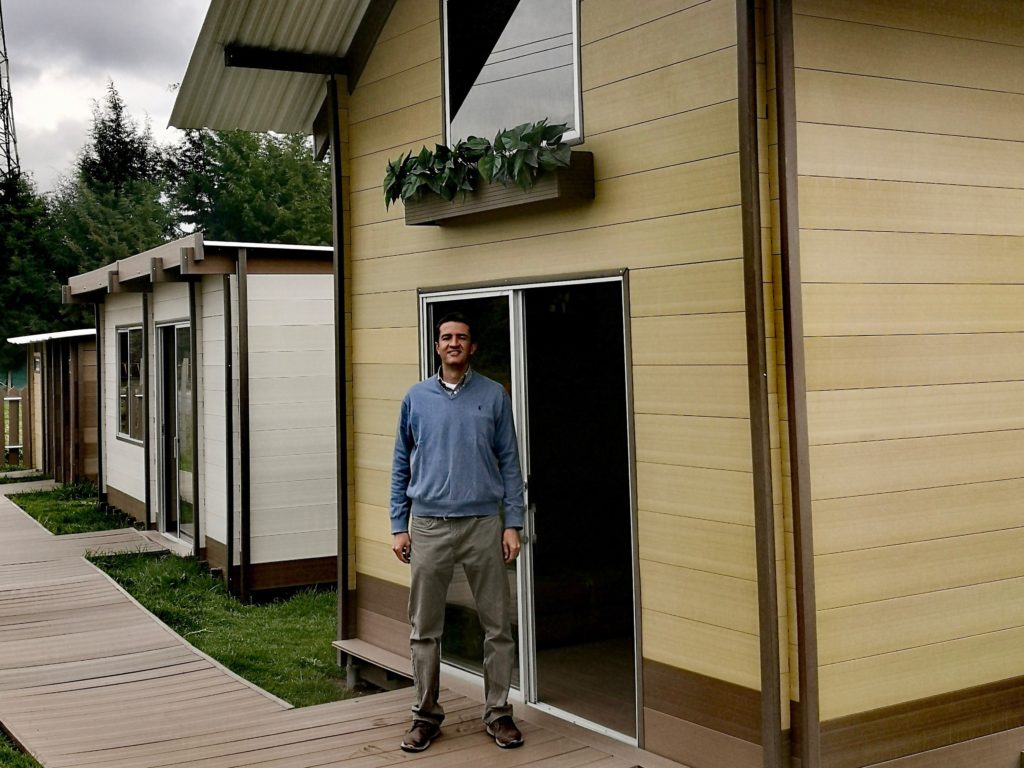
Alejandro Franco with the Woodpecker houses
Alejandro’s father, Andres Franco, has run a well-known construction company called MAECO for more than 36 years. “Most of their projects are built in the main Colombian cities and have a social infrastructure for the people who need them most,” the proud son explains. “MAECO SAS is the owner of Woodpecker WPC. So, I have been in the construction field since I was born!”
Alejandro told us how he father first discovered WPC: “My father is very curious and great entrepreneur; always looking for new things. One day, he was sitting in a bench in a park in Atlanta, in the USA, when he realised that it was made from a material that looked like wood, but it wasn’t. He touched it for a while and then we started to investigate it and came up with the idea of creating a fibre that was different to wood.”

To create the Woodpecker WPC material, they started testing different natural fibres – including rice, grass, pine sawdust, oil palm fibre, coconut fibre – and then did the same with polymers. The team did this research with Colombia’s famous Universidad de los Andes. “At that time, I quit my job and started the company from zero; importing machinery, testing profiles and models etc. It was a ten-year learning curve.”
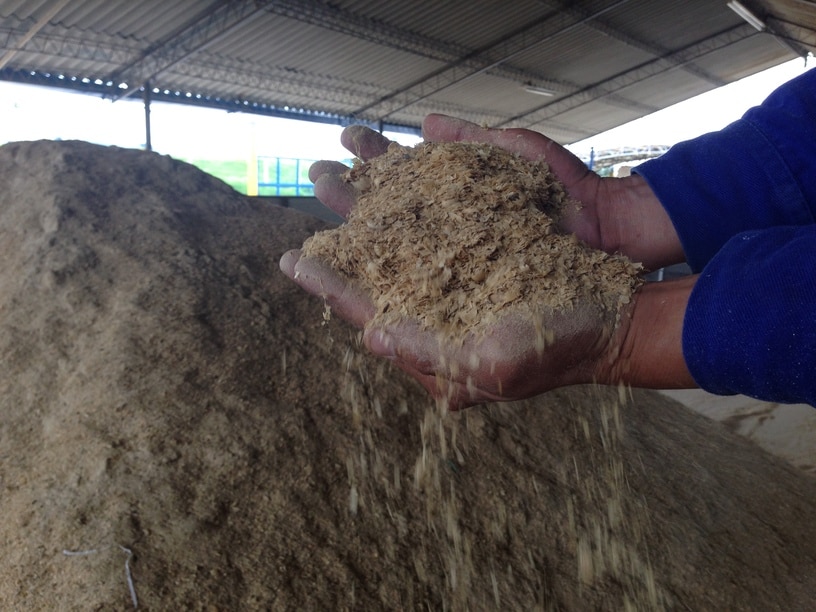
Coffee is widely available in Colombia, which is the world’s third-largest coffee producer. “To create our Woodpecker wood-plastic composite, we selected coffee husk because it’s stronger and drier than the other fibres, and fireproof. Our eco-friendly material is better than wood because it does not burn or splinter and is resistant to insects. Also, it is easy to be shredded and milled to make it in powder.” Plus, it’s light enough to move in a helicopter, small boat or on the back of a donkey.
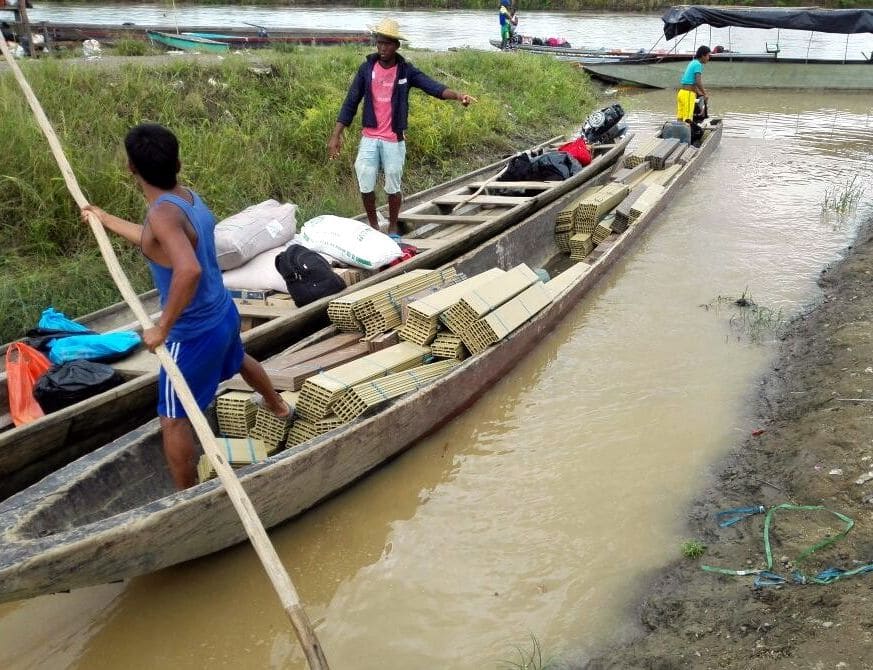
Like LEGO kits, the lightweight prefabricated buildings are modular, so they are easy to make and eliminate the need for wasteful cutting. Made solely from coffee husk and plastic-based boards and steel frames, they are easily transportable and can be built anywhere, by anyone. Construction can take less than a week as anyone can buy the kits and put them together themselves.
OK, with a little bit of help.
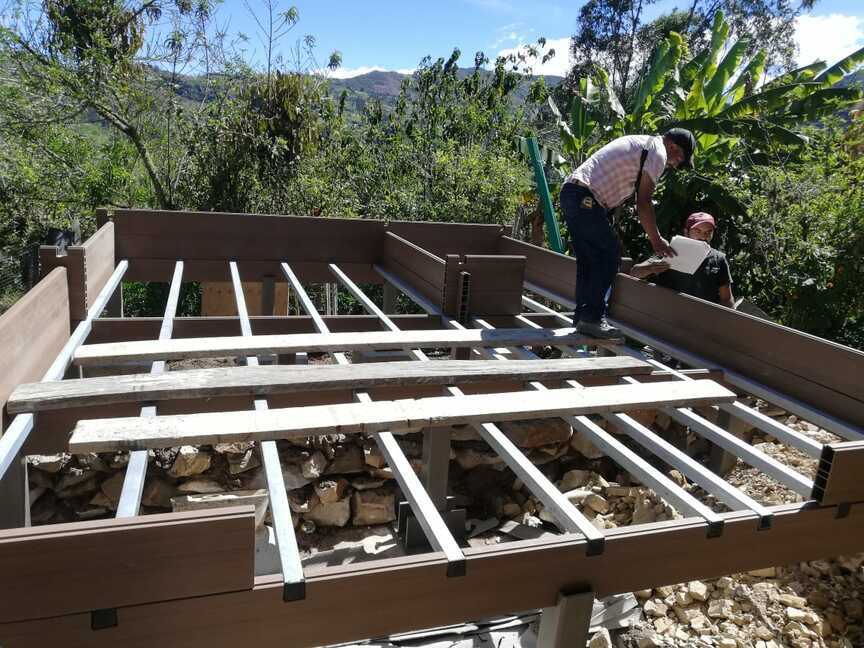
Each kilogram of Woodpecker WPC materials means one less kilogram cut from a tree. “The manufacturing process of our plant generates no waste, and we use rainwater. In addition, if we damage any composite in the production lines, we recycle it again.”
Thanks to both large-scale production methods and the low cost of the materials themselves, the houses are available for as little as $4,500 each.
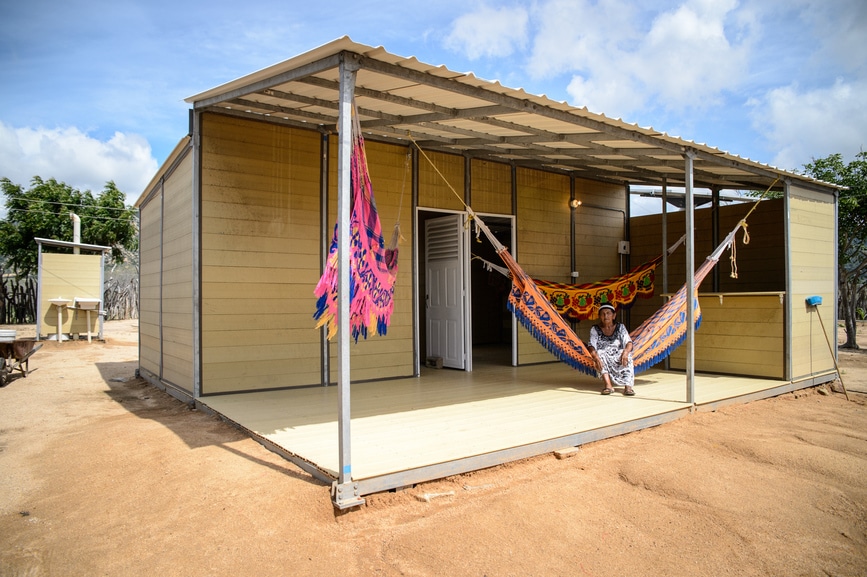
In November 2020, the government used Woodpecker’s designs in response to the extensive damage of hurricane Iota, which brought heavy rainfall to parts of Colombia, leading to flash flooding and mudslides and destroying 1,300 homes..
“They needed a fast solution and a lightweight construction system,” Alejandro adds. The company donated two houses, which the army helped build in five days. “The system worked perfectly considering that there was no energy supply, the soil was muddy, the airport damaged, no food, etcetera – all the problems that you can imagine.”

Next Alejandro wants to add solar panels, renewable energies and draining systems to collect rainwater, as well as test dry toilet systems where the solids can be used as fertilisers. He says that the main goal of the company is social wellness and that’s the reason for finishing the buildings in vivid colors, not greys.
At the time of writing this, Woodpecker have built 3,000 social houses and more than 1,000 classrooms in low-income areas with their modular systems and hope to scale up. Each house represents a family of at least four people. “The impact in social infrastructure (housing, education and sanitary) has been huge. People used to live in bad conditions and slums, and we are changing their lives significantly,” he says.
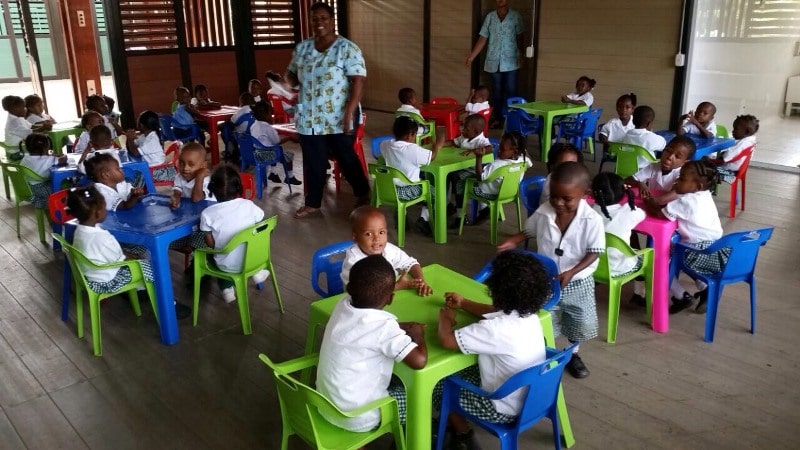
Building the construction kits in isolated places also generates labour, as a house requires three or four people to be built. The teams also encourage people to recycle and many local small companies and cooperatives recycle polymers for Woodpecker as a source of income.
“Each time you deliver a construction, and you see how people are happy, you are confident to say, we are creating a better future.”
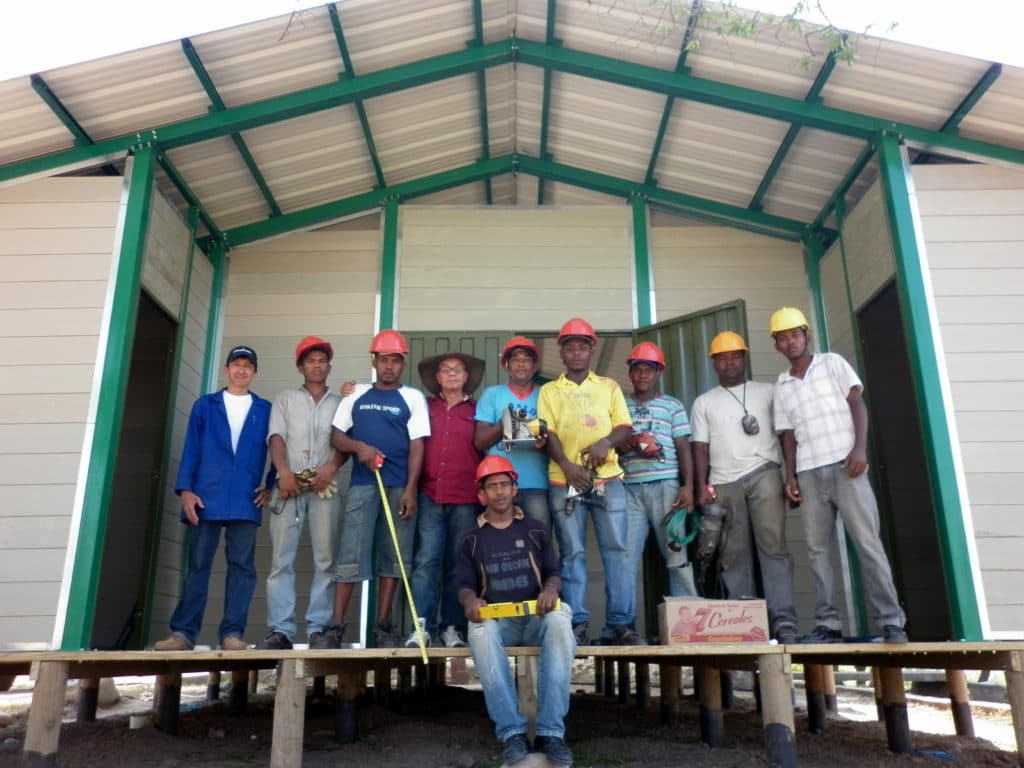
Alejandro’s father still sits on the Woodpecker board of directors. “He is always proud of Woodpecker and contributes with new ideas. He visits the plant on a weekly basis!” He adds that it was his father who knew that there was an unmet need for social housing in rural and isolated places which were was impossible to reach. “He has a lot of vision.”
AtlasAction: Contact Woodpecker here for more info about their materials and housing kits.
Project leader
Alejandro Franco, CEO
Support the Atlas
We want the Atlas of the Future media platform and our event to be available to everybody, everywhere for free – always. Fancy helping us spread stories of hope and optimism to create a better tomorrow? For those able, we'd be grateful for any donation.
- Please support the Atlas here
- Thank you!
